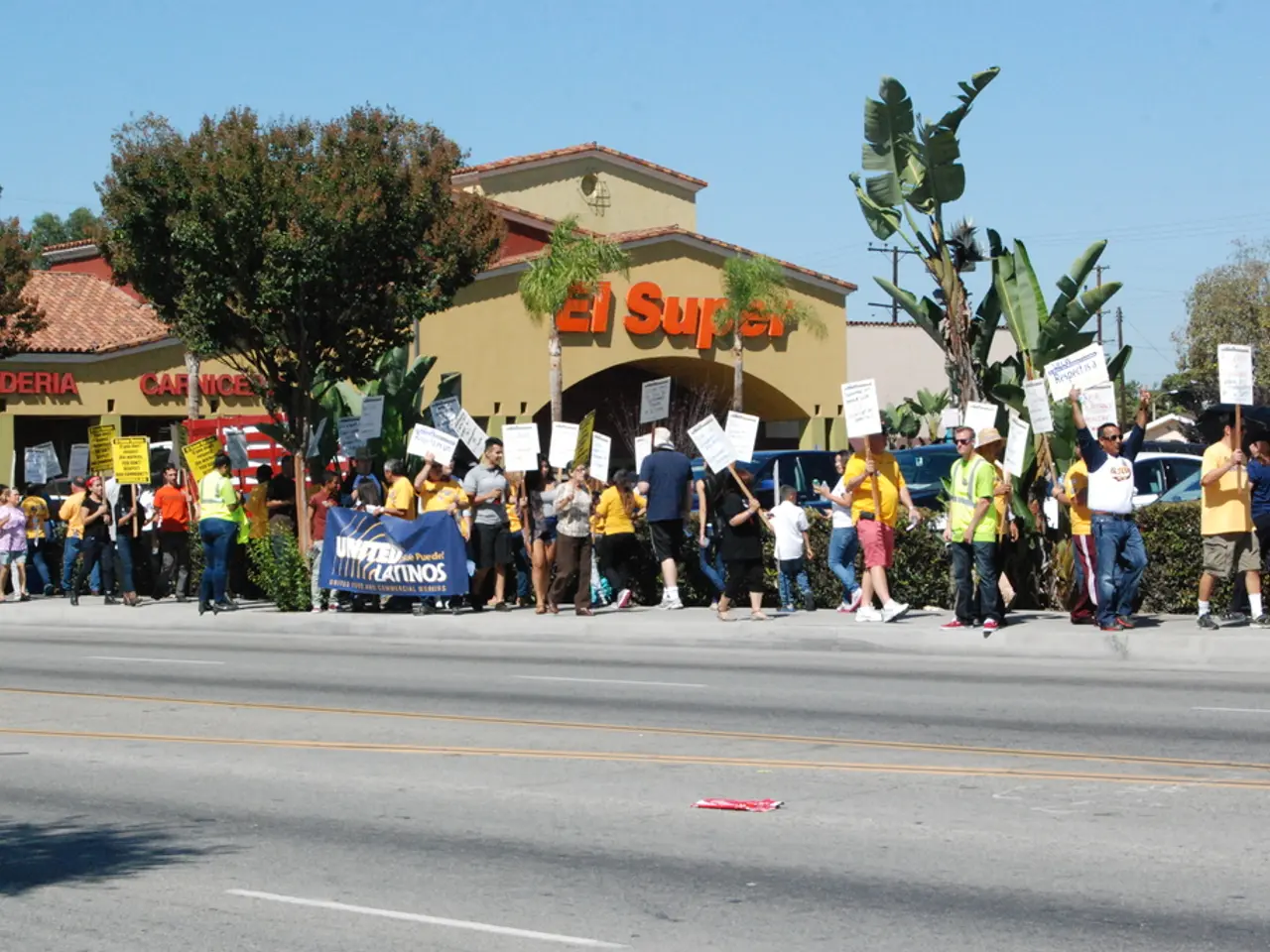Minister of Culture Imposes Firm Digital Barrier, as Both AfD and The Left Choose to Keep Distance
In the latest political developments in Germany, the Alternative for Germany (AfD) has taken the lead in a recent poll, securing 26% support - a one percentage point increase from the previous week [1]. This rise in popularity comes as the party continues its campaign against the Bauhaus, viewing it as a form of left-wing architecture [2]. Culture Minister Wolfram Weimer has warned that this campaign mirrors the NSDAP's persecution of Bauhaus designers and architects in the past [2].
Meanwhile, the Left party (Die Linke) has seen a decline in support, now standing at 11%, a one-point drop from its previous standing [3]. Weimer, in statements made to Funke Media Group newspapers, has criticized the Left party for wanting a different republic, though he places the AfD in a different category [4].
The AfD's rise and the Left party's fall have significant implications for the German political landscape. The AfD has shifted the right further towards nationalistic and xenophobic positions, forcing mainstream parties to address issues of immigration, national identity, and EU skepticism [5]. On the other hand, the Left party remains influential on social justice, anti-austerity, and peace issues but is also seen as pragmatic and sometimes pro-German power politics at the European level [1][2].
In response to these developments, Weimer advocates for a firewall against both the AfD and the Left party in political decision-making, seeking parliamentary decisions that do not require their support [4]. Weimer also rejects the idea of a ban procedure for the AfD, stating that it would only re-form under another name and that active fighting through convincing policy is necessary [6].
Elsewhere, Ukraine's President Zelensky has landed in the garden of the Federal Chancellery for a summit in Berlin [7]. Despite these political changes, the German political landscape continues to be marked by complexity and tension, as two influential but divergent parties - Die Linke, the institutionalized left with socialist roots and complex imperialist ties, and AfD, the radical right-wing populist challenger - shape the discourse on nationalism, immigration, and Europe.
References:
- Die Linke
- Alternative for Germany
- Germany's 2021 federal election
- Wolfram Weimer
- Impact of the AfD on German politics
- Ban of the AfD
- Zelensky's visit to Germany
The policy-and-legislation discussions in Germany are deeply influenced by the rise of the Alternative for Germany (AfD) and the decline of Die Linke, both shaping the nation's political landscape significantly. The AfD's extreme nationalistic and xenophobic positions force mainstream parties to address immigration and EU skepticism, while Die Linke, despite its pragmatic approach, remains influential on social justice, anti-austerity, and peace issues.







